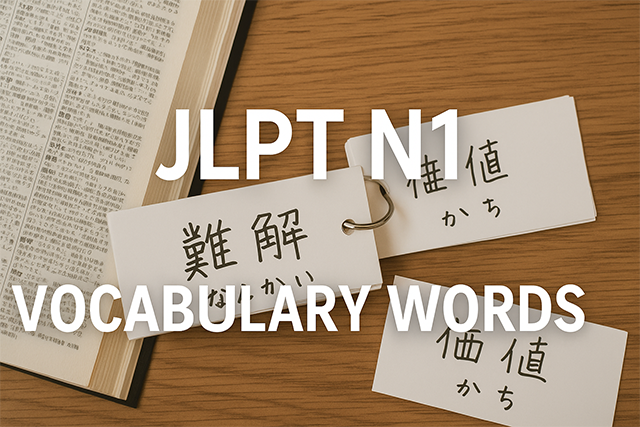The Real Talk About JLPT N1 Vocabulary: What I Wish Someone Had Told Me
So you’re thinking about tackling the JLPT N1? First off, props to you – this isn’t for the faint of heart! As someone who’s been through this grueling but rewarding journey, let me give you the honest scoop about what you’re really getting yourself into, especially when it comes to vocabulary.
The Number That’ll Keep You Up at Night
Here’s the thing nobody wants to tell you upfront: you’re looking at somewhere between 10,000 to 12,000 vocabulary words. Yeah, I know. When I first heard that number, I literally stared at my computer screen for a solid minute. But before you close this tab and go cry into your pillow, hear me out – it’s totally doable.
What Kind of Words Are We Talking About Here?
This isn’t your typical “hello, how are you” vocabulary anymore. N1 throws some serious curveballs at you. I’m talking about those academic terms that make you feel like you need a PhD just to read the morning news, business jargon that sounds like it came straight out of a corporate boardroom, and keigo (formal language) that’ll have you second-guessing every conversation with your boss.
Then there are those obscure kanji compounds that seem like someone just mashed random characters together for fun. And don’t even get me started on the idioms and proverbs – some of them are so old they probably predate sushi!
Why This Vocabulary Thing Is Such a Big Deal
Here’s what I learned the hard way: vocabulary isn’t just one section of the test you can afford to slack on. It’s literally everywhere. That reading passage about climate change? Good luck if you don’t know the technical terms. That business conversation in the listening section? Hope you’ve studied your corporate speak. One unknown word can derail your understanding of an entire paragraph – trust me, I’ve been there.
How I Actually Managed to Learn All These Words (And You Can Too)
Let me share what worked for me after trying approximately a million different methods:
Start with the boring stuff first. I used official JLPT vocabulary lists and apps religiously. Yes, it’s about as exciting as watching paint dry, but it gives you a solid foundation.
Make friends with past exam papers. These are pure gold. They show you exactly how words are used in context, which is way more helpful than just memorizing definitions.
Embrace your inner news junkie. I started reading Japanese newspapers daily, even when I could only understand about 30% of what I was reading. It was frustrating at first, but man, did it pay off.
Flashcards became my best friend. Whether you’re team Anki or prefer good old-fashioned paper cards, the key is consistency. I did mine every morning with my coffee – it became as routine as brushing my teeth.
Turn entertainment into study time. Japanese documentaries and news programs became my Netflix. Pro tip: use Japanese subtitles, not English ones. Your brain will thank you later.
The Resources That Actually Helped Me
Let me save you some time and money by sharing what actually worked:
The official JLPT website is your starting point – boring but essential. For apps, JLPT N1 Tango was a game-changer for me, and BunPro helped with grammar context. If you’re an Anki person, there are some fantastic N1 vocabulary decks floating around.
Book-wise, “Nihongo Sou Matome N1” and “Shin Kanzen Master N1” were my companions through many late-night study sessions. Fair warning: they’re not exactly page-turners, but they get the job done.
The Honest Truth About This Journey
Look, I’m not going to sugarcoat it – learning 10,000+ words is tough. There were days when I questioned my life choices and wondered if I should have just stuck to watching anime with subtitles forever. But here’s what kept me going: every new word you learn opens up a little more of the Japanese world to you.
Start earlier than you think you need to. Be consistent, even when you don’t feel like it (especially when you don’t feel like it). And try to immerse yourself in advanced Japanese content as much as possible. Your brain is more adaptable than you think.
The best advice I can give you? Don’t try to be perfect. Some days you’ll learn 50 new words, other days you’ll forget half of what you studied yesterday. That’s normal. That’s human. Just keep showing up.
頑張って!You’ve got this, even when it doesn’t feel like it.

